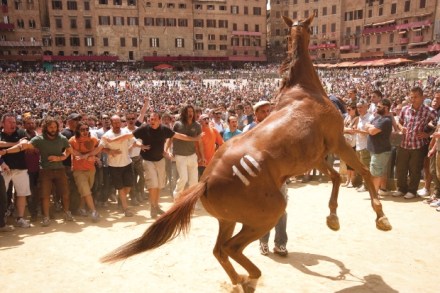Indiscreet astronaut
Among my more bohemian friends in 1980s London, Brion Gysin was a name spoken with a certain awe. He was the man who William Burroughs, the author of Junky and Naked Lunch, said was ‘the only man I ever respected’. Gysin was a modernist novelist, inventor and artist. He and his mathematician friend Ian Sommerville invented something called the Dream Machine, which was a spinning cylinder said to induce drug-free hallucinations. He came up with the idea of literary cut-ups, arguing that writing was 50 years behind art in its innovations and this was the writing equivalent of collage. The idea, of introducing random elements by literally cutting up and


















